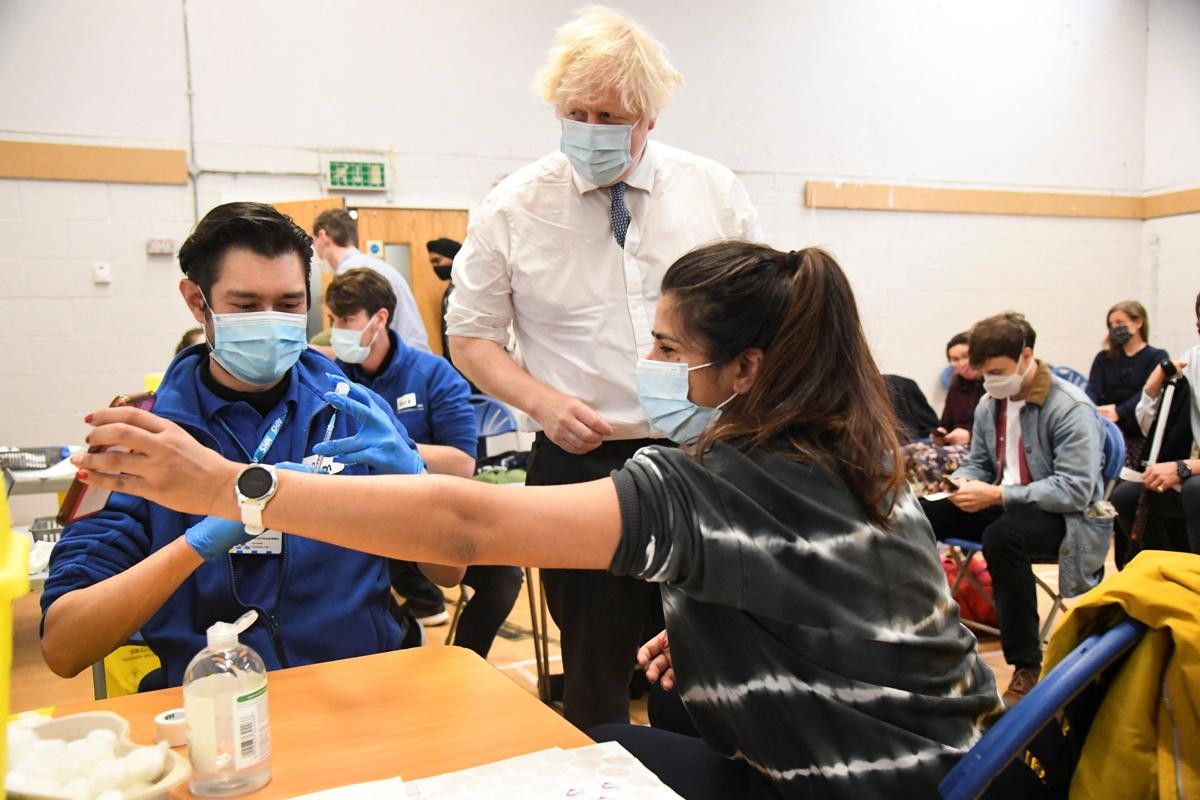The MPs on Tuesday approved an expansion of the requirement to wear face coverings in England to try to slow the spread of the Omicron coronavirus variant.
They voted by 441 to 41 in favour of the change, despite many from Prime Minister Boris Johnson's Conservatives saying they would oppose the measure.
Face coverings have already become a compulsory requirement in shops and public transport in England from 30 November and this has now been extended to most indoor public places.
The MPs also approved the introduction of Covid-19 passes to enter some venues and events in England, despite strong opposition from many Tory lawmakers.
The evening vote in the House of Commons was the largest backlash Johnson has faced from within his own ranks since an emphatic election victory in December 2019, putting him under further pressure after a string of recent scandals.
Lawmakers voted by 369 to 126 in favour of the introduction of a certificate of vaccination, or proof of a negative Covid-19 test to enter venues such as night clubs, or for large events, but 97 Tories defied the party line and voted against the rule.
Tory opponents argued that such measures undermine public freedoms, while the main opposition Labour party overwhelmingly supported the new restrictions.
Smaller numbers of Tory MPs (61) opposed measures to require state health care and social care staff to get vaccinated by April 2022, while 38 voted against making masks mandatory in theatres and cinemas.
Meanwhile, nightclub owners in London criticised new restrictions that will go into effect on Wednesday, saying that a lack of rapid Covid-19 tests will make enforcement a "big challenge".
Kate Fuller, who owns the Electric Ballroom nightclub in Camden in north London wants to work with the government as much as possible but the lack of available rapid testing is a problem for her business.
"Since the announcement of the restrictions, our business just took a massive downturn," she said on Tuesday. "There's no testing in a lot of the pharmacies. If you can't get the tests, it's going to be really hard for people to come."
"I think for our security and everything, implementing these is just going to be, you know, a big challenge," Fuller said.
Britain has registered almost 4,500 cases of Omicron, with 10 people hospitalised and one person dying after contracting the variant.
The new rules will apply to unseated indoor events with 500 people or more, unseated outdoor events with over 4,000 people and events with more than 10,000 attendees.
Clara Cullen, the venue support manager at charity Music Venue Trust, which supports around 900 music venues in the country, said there had been an increase in cancellations with income falling by 27 per cent in the past week.
"There will be financial implications to trying to implement the Plan B," said Cullen.
The pandemic forced entertainment venues in England to close their doors in March 2020. They slowly began re-opening in May with safety measures in place.
The evening vote came after Health Secretary Sajid Javid told MPs that Omicron was "a grave threat" and even though hospital admissions were still low, action was needed.
"They are measures that I think the situation demands because when the facts change, our response must change too," he said.
"There really is no time to lose," Javid added, noting scientists have predicted the true figure of those already infected in Britain could be as high as 200,000 a day.
But he confirmed that 11 countries, most of them in southern Africa, would be taken off the UK's so-called travel red list - barring most arrivals - as it was now "less effective" in stopping the spread.


